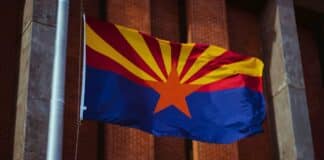Tennessee Governor Bill Lee’s school voucher bill, House Bill 6004, passed the Education Committee on Tuesday with a 17-7 vote after its second consideration in the House. The Education Freedom Act of 2025 has sparked intense debate among lawmakers and citizens, particularly over its potential impact on public school funding and attendance rates.
One of the primary concerns raised during Tuesday’s special session was the possibility of decreased funding for public schools due to lower attendance. Under the current system, public school funding is based on the previous year’s average daily attendance. However, Republican State Representative William Lamberth assured lawmakers that the bill would not reduce funding for public schools. “It resets the floor up each time and we’re never going back,” Lamberth explained, emphasizing that once funding is established, it cannot be lowered. “We haven’t gone back for a decade in K-12 public education funding, and we’re not going to start now.”
Democratic State Representative Gloria Johnson questioned the long-term financial impact of the bill, particularly in future years when additional funding protections might not be in place. “If you do not get the hold harmless money in 26-27, even though fiscal review said you would not get it in future years,” Johnson asked, “are you telling me they were wrong?” Lamberth reiterated that funding would never decrease due to disenrollment.
Another major issue discussed was disaster relief funding for the increasing number of private schools that would benefit from the voucher program. Lamberth argued that the bill prepares Tennessee for inevitable natural disasters. “We know disasters will occur,” he said. “In years past, we have had to play catch-up when something like that happens. This bill allows any school affected by a natural disaster to apply for funds.”
Johnson pushed back, raising concerns about taxpayers footing the bill for two separate education systems. “You’re telling me we’re gonna fund two school systems?” she asked. “We’re 42nd in the nation in public education spending, and now we’re asking taxpayers to pay twice?”
Lamberth dismissed concerns about public school funding, insisting that no school would lose money because of the bill. “No public school loses even one red cent due to this bill,” he stated. “If a child leaves due to disenrollment for any reason, the amount they received—if it were to reduce their TISA funding—would be the same.”
Public comments reflected a similar divide. Drew Sutton of the Tennessee Education Association voiced concerns about the lack of standardized testing requirements for private schools, particularly the absence of TCAP testing. “Recent studies of other states have shown the negative impacts on student outcomes are compounded as programs grow larger,” Sutton said. “Comparing those outcomes would be more difficult under this proposal as it does not require students to take the same TCAP tests used by public schools.”
Supporters of the bill, including Kevin Cline of Lakeway Christian Schools, argued that school choice empowers parents. “Supporting this bill is not to choose one type of school over another,” Cline said. “Rather, it’s about empowering parents to make the best decision for their child’s education.”
With the Education Committee’s approval, the Education Freedom Act of 2025 now moves on to the Government Operations Committee for further consideration.





